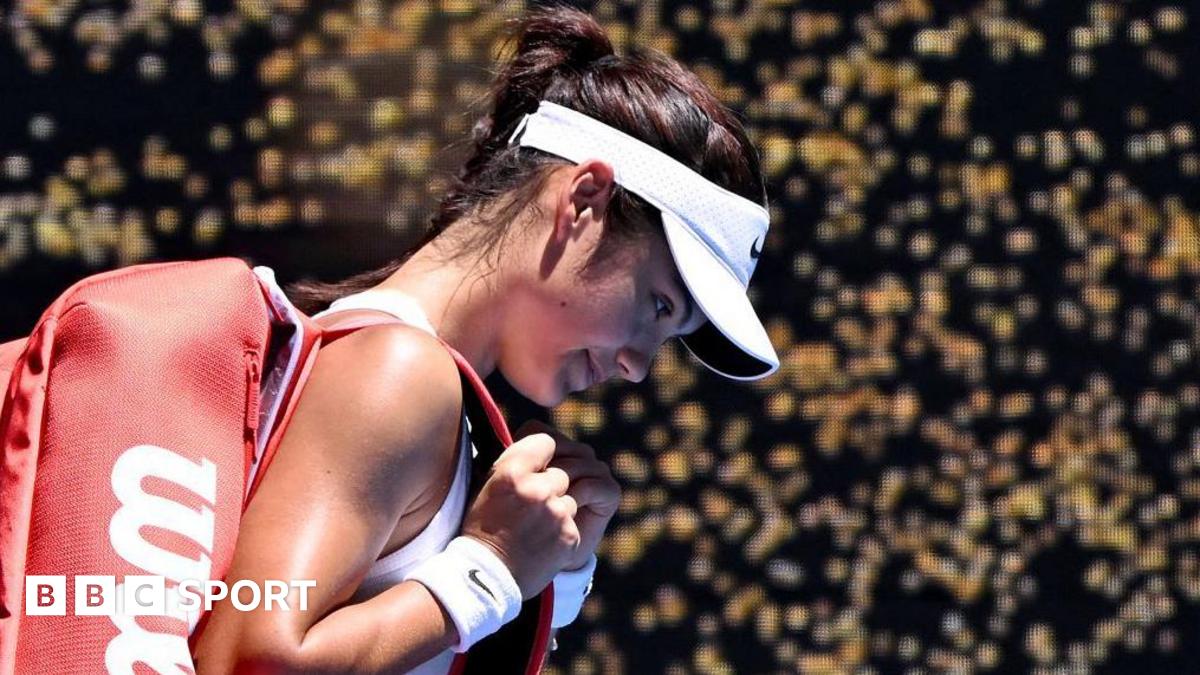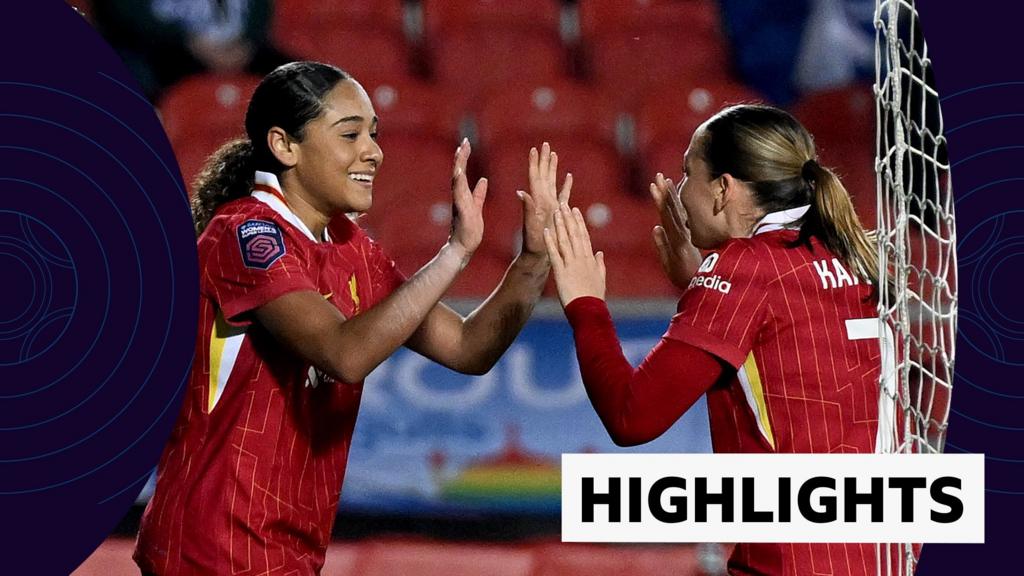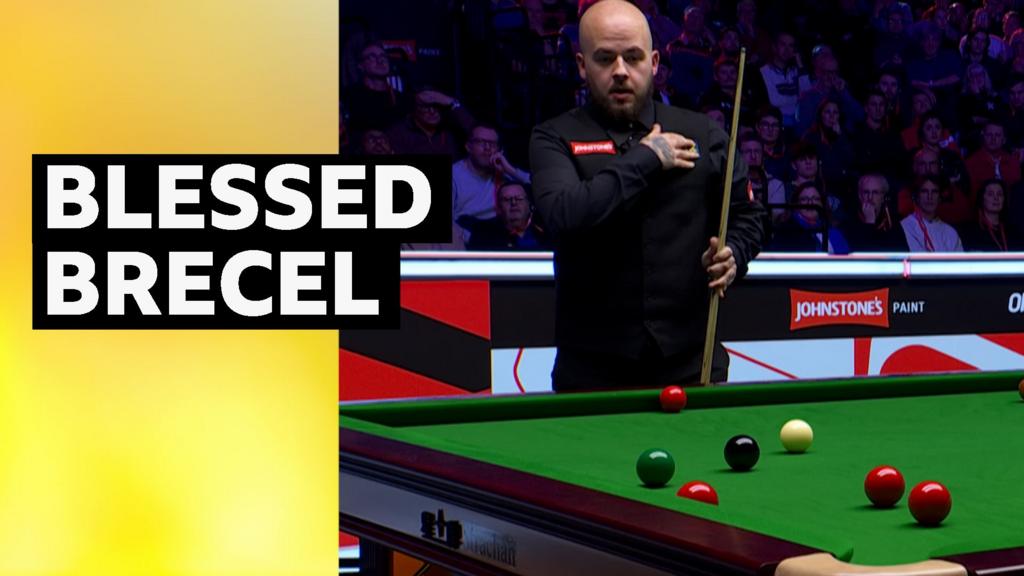ARTICLE AD BOX

Emlyn Begley
BBC Sport journalist
Image source, Steve Daniels
Image caption,Ramon Diaz spent only six months of his near 30-year managing career working in Europe - at Oxford United
Twenty years ago a Copa Libertadores-winning legend turned up to manage mid-table fourth tier side Oxford United.
Six months later Ramon Diaz and the rest of his seven-man entourage were blocked from even entering the ground.
It seems unlikely anybody will ever join the former River Plate manager, who played for Argentina, Inter Milan, Monaco and others, in winning South America's top tournament - and the League Two manager of the month award.
BBC Sport tell the story with help from former players Steve Basham, Chris Tardif and Lucas Cominelli, BBC Oxford editor Jerome Sale, and Jean Marc Goiran, the man who brokered the deal and acted as assistant manager, translator and unofficial chief executive.
'Who are these guys?' - How it started
Image source, Darrell Fisher
Image caption,Fitness coach Pablo Fernandez, translator Guilliano Iacoppi, boss Ramon Diaz, coach Horatio Rodriguez and assistant Jean Marc Goiran (pictured from left to right) were five of the seven-strong party
It was December 2004.
Oxford United, the 1986 League Cup winners, were in a slump, having dropped from the second tier to the fourth since 1999 - and were sliding down League Two when owner Firoz Kassam sacked Graham Rix.
Kassam, the club's unpopular owner, invited out-of-work manager Chris Turner to watch their 1-0 defeat by Swansea - and most people thought he was the new manager, including the Oxford Mail, external and some players.
But instead... "It was quite bizarre," said former U's striker Basham. "Five or six guys came in, in a line. They all stood in front of us and none of them spoke a word of English, apart from one translator."
Goiran said "all the players had wide-open eyes wondering 'who are these guys?'".
Those guys were Diaz, head coach Horacio Rodriguez, another coach Raul Marcovich, Goiran, fitness trainer Pablo Fernandez, doctor Rafael Giulietti and translator Giuilliano Iacoppi.
But wait, how did it come to this? It all starts in Monaco - where Kassam and Goiran lived and Diaz also had a home having played for the club.
Kassam approached a friend of a friend, Goiran, who has worked as a football agent and consultant, to help him find a manager and the Monegasque suggested Diaz - who had left River Plate in 2002.
At the time it was widely reported that Diaz was not being paid to be Oxford manager - and Kassam said he had "promised him shares in the club in return for success".
But Goiran, speaking 20 years on, says Kassam's company Firoka, but not the club, instead paid Diaz and Goiran consulting fees in Monaco.
And the question many have asked - why did a manager with five Argentine titles and the Copa Libertadores come to League Two Oxford?
Goiran says it was part of a project to get to the Premier League in five years - but after a bitter ending, Diaz, who is now Corinthians manager in Brazil, never worked in England or even Europe again.
"When they first came in, there were grand talks about redeveloping the stadium, putting a new stand behind the goal and taking us into the Premier League," said goalkeeper Tardif.
'Very new and fresh' - How did training change?
Back in 2004 there was less foreign involvement in the lower leagues in England, so it was an even big culture shock then than it is now.
But many of the players bought into the new training ideas, although some struggled to adapt.
"They brought something very new and very fresh to Oxford United at that time," said Basham, who played for the club between 2002 and 2007.
"It was way before its time. They came in with ideas and the philosophy that probably hit the English game two, three, four years later, certainly in the lower leagues."
Rodriguez would be hands-on - with Diaz overseeing things. To some around the club Rodriguez was seen as the traditional boss of the team with Diaz almost a director of football.
Diaz and his coaches only spoke broken English, so had to communicate via their translator.
But Goiran, who was involved on the training pitch too, says Diaz was the manager and had the final say in everything.
Basham said: "He [Diaz] would come in amongst the team as we were laid out in our shape and he would take us through with movements. Very different, but it worked.
"He'd physically move you, he would then have you alongside him and he'd make the runs and you would make those runs with him."
Goiran said: "It was a very nice atmosphere. It was a great adventure. We changed the way they trained, the mentality. We taught them they are football players."
They were popular figures off the pitch too.
BBC Oxford's Sale said: "Ramon and his staff were imposing and impressive, but also gentle and friendly.
"He once asked me for $100,000 for interviews. I said the BBC wouldn't stretch that far. He said just to bring him a decent coffee next time then."
'More of a Pep philosophy' - Dream start on the pitch
Image source, Oxford United
Image caption,Ramon Diaz and his entourage were popular with the Oxford fans
It all started so well. They had been brought in to help the club avoid relegation but four wins and two draws in January got them dreaming of the play-offs - and Diaz was named League Two manager of the month.
Remarkably it would take over 17 years for another Oxford manager to win an EFL award like that again - Liam Manning in September 2023.
"There was an immediate buzz around the ground," said BBC commentator Sale. "The football went up a notch and the fun came back."
Diaz and co had brought in a proper attacking style of football. Fitness and pressing were a big part of it too.
"We changed completely the way they play and they started to win," said Goiran.
"When a player starts to win they have pleasure, the mentality is better, they have confidence."
Basham said: "They were very much wanting to play football, which suited most of the team.
"I love getting the football down, love playing football, love linking play up and working to a strategy. So it was a bit different, certainly from the Ian Atkins [pragmatic lower-league manager who left Oxford in April 2004] times, which I enjoyed too."
One of Diaz's innovative strategies was leaving three quick players up the pitch while they were defending a corner in case of a counter-attacking possibility.
"It was more of a Pep philosophy in terms of total football even at that level," said Tardif, referring to Manchester City boss Pep Guardiola.
"It’s great when it's all world-class players but in the lower leagues it's not always possible. They tried to enforce football at its purest form. We tried it. Sometimes it worked and sometimes it failed."
'Some good, some not so good' - Argentine players come in
Image source, Getty Images
Image caption,Lucas Cominelli was offered a new deal to stay with Oxford, but new manager Brian Talbot did not want any of the Argentines
The new management team wanted to freshen up the squad and brought in a host of trialists - some days about half of the people training were trialists.
Out of those came a few South American signings - midfielder Lucas Cominelli, winger Juan Pablo Raponi and Uruguayan defender Mateo Corbo. Diaz's sons Emiliano and Michael - who was young and never played for the first team - also joined.
Results were mixed.
Cominelli played 16 times, scoring a long-range effort against Grimsby, and was seen as one of the successes.
"Oxford were fantastic," said Cominelli, who had once been on the books of Newcastle without making a first-team appearance.
"It was really good. I had a good experience, a good memory of it from the fans, the city, the club."
Full-back Corbo remains a cult hero at the club after eight yellow cards and a red card in 13 games.
Raponi, who had played for River Plate, was too lightweight for League Two but played 10 times.
Emiliano Diaz, who played seven times, is often mentioned in discussions about Oxford's worst ever players.
That was just one of many times he worked with his dad - having played under Ramon at River Plate and been his assistant manager at over 10 teams since retiring.
Cominelli added there were never issues between the England and South American players.
"The team-mates were really OK," he said. "It was really welcome. They helped and everything. We had a good dressing room."
Basham added: "Some [were] good, some not so good. Some fitted in really well. A couple were superb, really worked hard, good on the ball, really good additions to the side.
"And then you had one or two that it didn't quite work out for them.
"Raponi was very quick, he made an impact at times, but the physical side of the game sometimes was a bit too much for him."
'Fizzled out' - Things start to go downhill
Image source, Oxford United
Image caption,The falling out between Firoz Kassam (left) and Ramon Diaz (right) over the ambitions of the club proved to be the downfall of the experiment
After the good run in January, though, Oxford's form took a dip, losing four of the next five games.
And things were unravelling off the pitch too.
Diaz and Kassam fell out over a difference of opinion in the ambition of the club - and over Diaz not speaking English.
The manager, plus some of his coaches, missed a few games for work permit or passport reasons.
Basham said it just "fizzled out" as the club finished 15th - nowhere near the top or bottom.
"It's almost surreal looking back," said Tardif. "It was difficult for them coming in our level. They weren't quite ready for having to do the basics over and over again.
"I really liked them as people. Do I think it was the right match? Probably not."
Goiran was in discussions with Kassam about how to structure the club's marketing and finding investment.
"There were a lot of things to do because the club was not professional for me," he said. "I spent about 12 hours per day minimum working on that and we made a lot of progress.
"I was more like a chief executive than other things - but I was still close on the training ground.
"The relationship between Ramon and Firoz was difficult. They discussed the future and financial things. Ramon didn't feel that Firoz would like to grow [the club]."
Basham said: "I think they had really big plans for Oxford United. They were all pushing in the right direction.
"I think they all thought they were close to some sort of deal with Kassam and for whatever reason it all just ended up... yeah, there was a big fallout, which was a real shame."
'We had to leave everything there' - The sudden ending
Once it was obvious Diaz would probably leave the club, Goiran tried to find another manager for the project.
Diaz resigned as manager and he and his sons flew home before the penultimate game of the season.
"His decision to leave was unexpected and I am disappointed," said Kassam at the time - who added keeping Diaz would have cost the club £1m.
The Oxford Mail even reported that Rodriguez was set to become the new manager., external
But suddenly the entire experiment was over. Before the final game of the season, at home to Chester, Kassam got rid of Diaz's entire backroom staff and appointed Brian Talbot.
Goiran was offered the chance to stay but said "I brought these people in and if they're going out I have to go with them".
"Everything was so OK except the relationship between Firoz and Ramon. We had a lot of good plans for the future, a lot of ideas regarding investors to change the club and grow. But it was a bad ending," Goiran said.
And it got very messy as Diaz and his coaches bought tickets to watch the final game of the season against Chester and to say thank you to the Oxford supporters.
But Kassam ordered his stewards to refuse them entry and an argument broke out 10 minutes into the game - with fans leaving their seats to ask they be let in.
"We had to take the car and left everything there. It was not a good ending," said Goiran.
"I was very sad to leave the club. It was a fantastic time. I did it with my heart plus everything. The feeling I have with the fans was 'wow'.
"It's my club forever - I’m always looking at their results. It's a love story between me and Oxford."
That was the end of all the South American players too.
Cominelli said: "The club had offered me a new contract. I wanted to stay but the new coach who came [Talbot], he decided all the foreign players [should be] gone."
Kassam and Diaz, through his current club Corinthians, did not respond to requests to speak to the BBC for this feature.
The following season Talbot was sacked, Kassam sold the club and Oxford were relegated to the Conference.

 1 month ago
8
1 month ago
8








 English (US) ·
English (US) ·